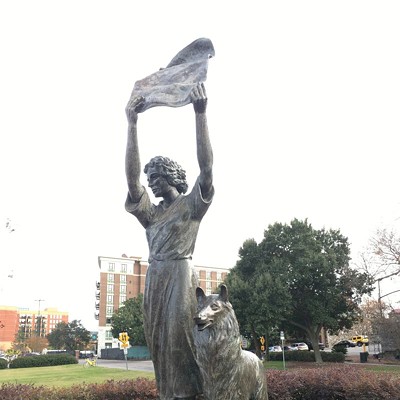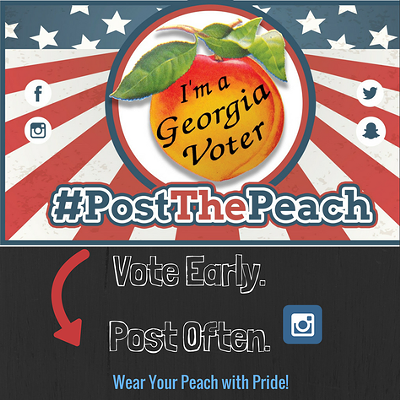FEW ISSUES offer a more succinct microcosm of Savannah’s conundrum of poverty and privilege more than the issue of abandoned shopping carts.
For such a seemingly mundane, almost silly issue, its deeper symbolism sparks emotional reactions on both sides.
Like installation art, abandoned carts — buggies in deep South parlance — dot Savannah’s urban landscape.
Some individual carts have been abandoned in the same place for so long that they are dependable neighborhood landmarks, encased in ivy.
Sometimes they cluster together more like a feral colony and appear to have the ability to spawn themselves.
The abandoned shopping carts represent two things: The property of retail stores, and the efforts of disadvantaged people without dependable transportation to get groceries back home.
My baseline assumption is that those who take carts out of the store and back to their house aren’t doing so because they think they look cool doing it, or because they just always wanted a Kroger cart on the sidewalk outside their home.
Five years ago I wrote a column headlined “Shopping Cart Syndrome.” With the exception of the mayor’s name and a couple of minor details, I could write the same column verbatim today.
“People take shopping carts from stores because they have to eat. And they have to get their food home somehow,” I wrote back then.
One can see it as a real shame that stores lose their property in this manner, and also empathize with why people do it.
In those five years, the situation has changed somewhat only in that City Council has an ordinance they seem more determined to pass, one which puts the burden squarely on grocery stores to police the issue and shoulder the cost.
At last week’s Council meeting, Alderman John Hall said, “This has been a problem in neighborhoods for a long time, in some areas more than others. Neighborhood groups have asked us repeatedly to do something about all the shopping carts scattered over the landscape.”
There was potentially going to be to vote on it at last week’s meeting, but objections from grocery and retail organizations prompted a two-week continuance to sort out the details.
The delay came with a threat from Mayor DeLoach: “In 2013 they were talking about this. Here it is 2018... Y’all have to find a solution within two weeks. If you don’t, we will place a solution on you.”
Complicating matters is the fact that both sides make valid points.
As Kathy Kuzava of the Georgia Food Industry Association told Council, “Taking something off of someone else’s property is stealing... it’s no different from taking meat from the meat counter.”
Kuzava went on to say that while she understands why people take the carts, “That’s a poverty problem. I don’t know that it’s the grocer’s challenge to get the customers home. I’m not sure how that’s going to work.”
Addressing a representative of the Georgia Retailers Association, a frustrated Alderman Hall said, “All these stores you represent have loss prevention programs... why can’t this be incorporated into that loss prevention program? Why can’t someone monitor what goes out of that front door? This is an easy fix for y’all, but you’re making it hard.”
The retailers rep responded that “We feel we’re being punished for having our property stolen. Under Georgia law it’s a specific misdemeanor theft to steal shopping carts.”
But when pushed to say whether or not they would press charges against their own customers, grocery and retail reps largely demurred.
Alderman Van Johnson, speaking in support of the harsh ordinance — which charges grocers a fine of up to $375 per abandoned cart — said “People don’t take shopping carts to joy ride. They have no other way to get groceries from Point A to Point B. We talk about food deserts and transportation... some people are not able to do the things that we’re able to do. They need groceries too.”
While Johnson is 100 percent right — and has also been on Council quite awhile and could arguably be blamed for at least some of the poverty problem — Kuzava made an also accurate observation about the unintended consequences and often counterproductive nature of regulation:
“The same areas that have problems with food deserts are the same areas with problems with poverty and stolen shopping carts. These are the same stores you’re trying to get into the community” to address the food deserts, she said.
The debate seems a bit pointless when you realize that both sides, City and grocers, are simply arguing about who is going to subsidize the practice of removing shopping carts from store property.
The City says taxpayers shouldn’t have to shoulder the burden of cart retrieval.
The groceries say they shouldn’t be fined for getting their property stolen, or shall we say, borrowed indefinitely without permission.
If you look closely, the debate mostly sidesteps the issue of poverty, as almost every debate here ends up doing in the end.
Taking shopping carts home is likely to remain a part of the local landscape, literally as well as economically.
My guess is that on the grocers’ end, they will just eat the cost (pun intended) and unfortunately pass most of it on to consumers.
In the end, the only quick fix that government can do seems to be to better coordinate the placement of Chatham Area Transit stops around town, which tends to be a major congregation area for unattended flocks of carts.
(What should be the proper collective noun for such a flock? An express lane of lost carts? A bugout of buggies? A “dereliction,” as a friend suggests?)
As Alderman Bill Durrence pointed out at the meeting, “This is a real problem for CAT because so many carts are left at bus stops.”
Durrence said, correctly, that the best solution will be one that involves CAT in some way.
But as usual, we are still talking about short-term fixes for a very long-term problem.






























